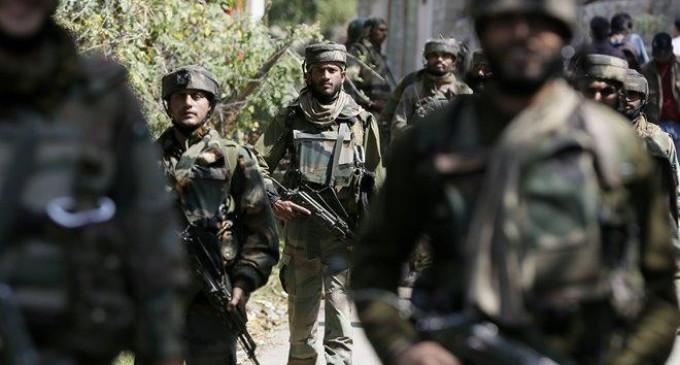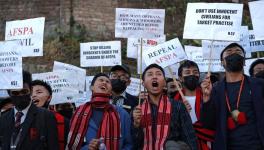Why Conditional FIRs Are a Bad Idea

Representational image. | Image Courtesy: Northeast Today
First information reports (FIR) are the initial stage of any investigation upon receiving a complaint or ‘first information’. In the recent past, the issue of vexatious FIRs have come to the forefront. Whether it is in the case of offences under the Scheduled Castes and Scheduled Tribes (Prevention of Atrocities) Act (POA), or even actions performed under the Armed Forces (Special Powers) Acts (AFSPA). With regard to the first legislation, the Supreme Court had controversially relaxed the bar on anticipatory bail. To enable a person for anticipatory bail, a preliminary inquiry conducted by the police would reveal if there is any merit in the complaint or not. The next part of matter is that in the case of public servants, the prior sanction from the appointing authority is a must. This ties into the controversy surrounding the AFSPA, wherein many serving and retired service personnel seem to advocate some sort of ‘protection’ from motivated FIRs.
The core issue regarding AFSPA and the protection it allows the security forces operating in internal conflict zones is contained in section 6 of the Act. Under section 6; “No prosecution, suit or other legal proceeding shall be instituted, except with the previous sanction of the Central Government, against any person in respect of anything done or purported to be done in exercise of the powers conferred by this Act.” Hence, for those on the side of expanding civil rights and liberties, this provision is draconian in its scope as it requires ‘sanction for prosecution’.
However, the current demand finds its origin in January 2018 with the case of Major Aditya Kumar of the 10 Garhwal Rifles. Major Aditya Kumar had been accused of ordering his unit to open fire on civilians in Shopian, Kashmir. His father, Lieutenant Colonel Karamveer Singh petitioned the Supreme Court to quash the FIR. The Union Government as well as Lieutenant Colonel Karamveer Singh have argued to interpret the provision to mean that sanction is required for investigation, i.e., even registering a FIR be made subject to approval. On the other hand, serving personnel had appealed to the Supreme Court in August 2018 to draw up a procedure by which motivated FIRs can be weeded out. Even though what had prompted the servicemen to go to the Court was the Supreme Court ordering a Central Bureau of Investigation (CBI) inquiry into extrajudicial killings in Manipur, the result is that the members of the forces appear to have demanded a transparent system to operate in.
Also watch: Kashmir vs State: Policy of Extra-Judicial Killings?
The Supreme Court refused the demand and told the petitioners that it is the legislature who ought to come up with procedures and guidelines. This is a departure from the 1997 decision in Naga Peoples Movement for Human Rights v. Union of India wherein the Supreme Court laid down guidelines to be followed in areas where AFSPA is in operation. However, the primary issue could possibly lie somewhere in the middle.
The primary issue is over nomenclature. On one hand, the union government tends to view all internal conflict zones as matters of ‘law and order’. This is quite misleading as the level of militarisation in many of these zones resembles a civil war. Foreign army doctrines such as ‘hearts and minds’ (which has been rebranded as sadhbhavana) are often brought into play. However, these doctrines were evolved for situations where the armed force in control is a foreign army. Law and order being a state subject under List II of Schedule VII to the Constitution would imply that the state police forces should be the ones to deal with the matter. However, there is a duty on the part of the union government to extend aid to civilian governments in the states. Hence, sending in the armed forces when the situation is well beyond what a civilian police force is equipped to deal with is perceived to be the solution. But, the nature and scope of the conflict is usually such that the armed forces are pushed to take decisions against the broader political objective, i.e. undermining the support for the armed political actors. Hence, litigation, however late, becomes the only protection that the civilian population has against the agents of the State. The excesses of the armed political groups are liable under the existing criminal law. In which case, how can civilians protect themselves against the excesses of the armed forces if even registering a FIR is subject to conditions?
Also read: Will the Army’s Strategic ‘Recalibration’ Heighten Tension in NE?
This situation poses a major dilemma to the union government as the nature of powers and protections sought by members of the armed forces operating in these areas would have to necessitate that the conflict is recognised as more than a law and order issue. However, designating these conflicts that the union government staunchly declares as being ‘internal matters’ to being more than that (particularly when sovereignty is a demand), would open the doors to international scrutiny. The net result is that the armed forces are made to operate in a role they were never meant to fulfil. This current state of affairs does no justice to anybody, the civilian population is caught between the armed political actors and the agents of the State. At present, AFSPA provides the members of the armed forces a disproportionate level of insulation from prosecution. If this is further strengthened to bring investigation within its scope, one would have to wonder how ‘hearts and minds’ can be won.
Get the latest reports & analysis with people's perspective on Protests, movements & deep analytical videos, discussions of the current affairs in your Telegram app. Subscribe to NewsClick's Telegram channel & get Real-Time updates on stories, as they get published on our website.
























